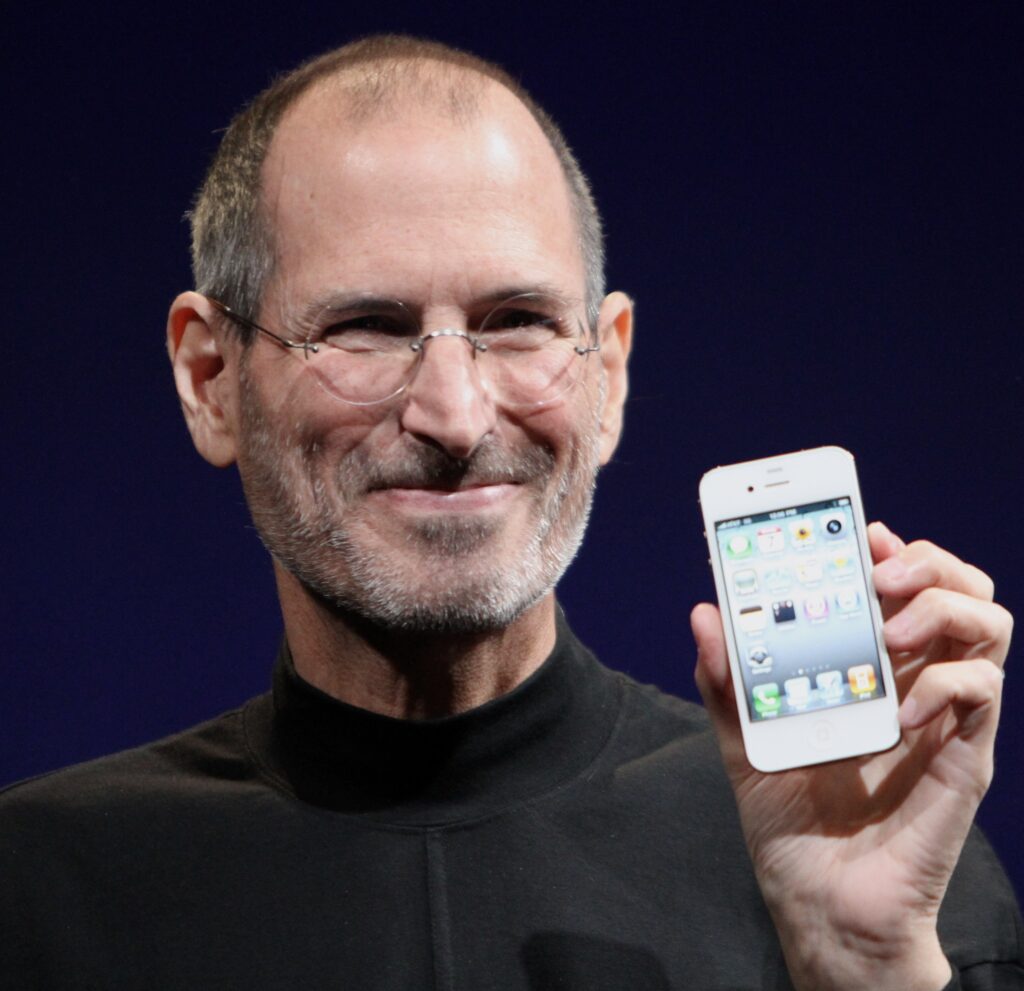
Steve Jobs, the co-founder of Apple Inc., was a visionary, entrepreneur, and pioneer of the technology industry. He was a charismatic and influential figure who left an indelible mark on the world through his innovative products and revolutionary ideas.
Early Life and Background
Steven Paul Jobs was born on February 24, 1955, in San Francisco, California. He was adopted by Paul and Clara Jobs, a lower-middle-class couple who nurtured his curiosity and passion for electronics from a young age. Jobs’ fascination with technology led him to experiment with electronics in his garage during his teenage years.
Founding of Apple Inc.
In 1976, Steve Jobs, along with his friend Steve Wozniak and Ronald Wayne, founded Apple Computer Inc. in the Jobs family garage. The company’s first product, the Apple I computer, garnered attention, but it was the Apple II that brought them commercial success.
Steve Jobs’ Vision and Innovations
The Macintosh Computer
In 1984, Jobs introduced the Macintosh, a groundbreaking computer with a graphical user interface and a mouse. The Macintosh revolutionized the personal computer industry and set the standard for modern computing.
Pixar Animation Studios
Jobs co-founded Pixar Animation Studios, a company that produced the world’s first computer-animated feature film, “Toy Story.” This venture showcased Jobs’ ability to identify and nurture talent in various creative fields.
The iPod and iTunes
In 2001, Apple launched the iPod, a portable media player that changed the way people listened to music. Coupled with the iTunes store, users could easily purchase and manage their music collections digitally.
The iPhone
The introduction of the iPhone in 2007 revolutionized the mobile phone industry. The iPhone’s touch-screen interface, internet capabilities, and the App Store laid the foundation for the modern smartphone era.
Departure and Return to Apple
In 1985, Jobs resigned from Apple following internal conflicts. He then founded NeXT Inc., which focused on developing advanced computers for the education and business sectors.
In 1996, Apple acquired NeXT Inc., bringing Steve Jobs back to the company he co-founded. Jobs took over as CEO, and his strategic decisions led to Apple’s resurgence.
Legacy and Impact
Steve Jobs’ attention to detail and emphasis on design greatly influenced the tech industry. His dedication to creating user-friendly products and seamless experiences set new standards for consumer electronics.
Inspirational Leadership Style
Jobs’ charismatic leadership style motivated employees and encouraged them to think outside the box. His famous product launches became iconic events in the tech world.
Steve Jobs’ Personal Life
Beyond his professional achievements, Jobs was known for his minimalistic lifestyle and spiritual beliefs. He was a private individual who valued time with his family and close friends.
Conclusion
In conclusion, Steve Jobs’ contributions to technology and innovation continue to resonate globally. His vision, leadership, and commitment to excellence have left an enduring impact on the world.
FAQs
What were Steve Jobs’ most significant achievements?
Steve Jobs’ most significant achievements include co-founding Apple Inc., introducing the Macintosh computer, pioneering the iPod and iTunes, and revolutionizing the smartphone industry with the iPhone.
What was Steve Jobs’ leadership style like?
Steve Jobs was known for his inspirational and visionary leadership style. He motivated his teams to strive for excellence and was deeply involved in the design and development of Apple’s products.
How did Steve Jobs impact the animation industry?
Jobs co-founded Pixar Animation Studios, which produced the first-ever computer-animated feature film, “Toy Story.” This marked a significant milestone in the animation industry’s history.
What led to Steve Jobs’ departure from Apple in 1985?
Internal conflicts with the Apple board of directors led to Jobs’ resignation in 1985. He then founded NeXT Inc., a company that focused on advanced computer development.
How has Steve Jobs’ legacy influenced current tech leaders?
Steve Jobs’ emphasis on user experience, design, and innovation has become a benchmark for current tech leaders. His legacy continues to inspire creativity and product development in the technology industry.
